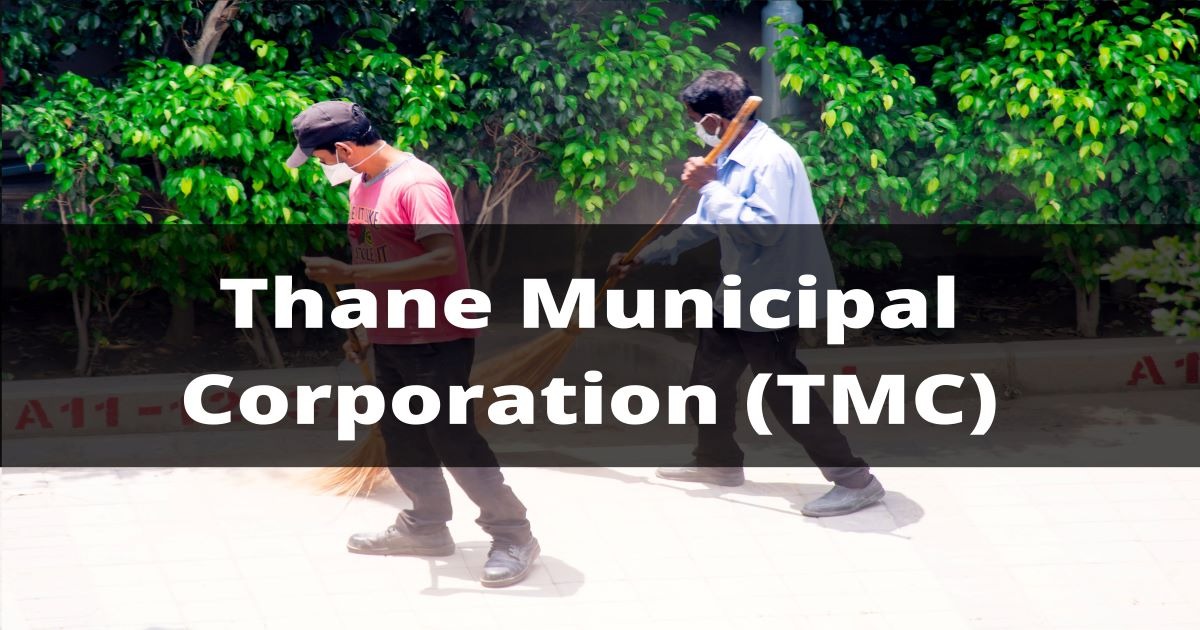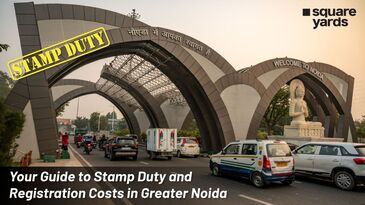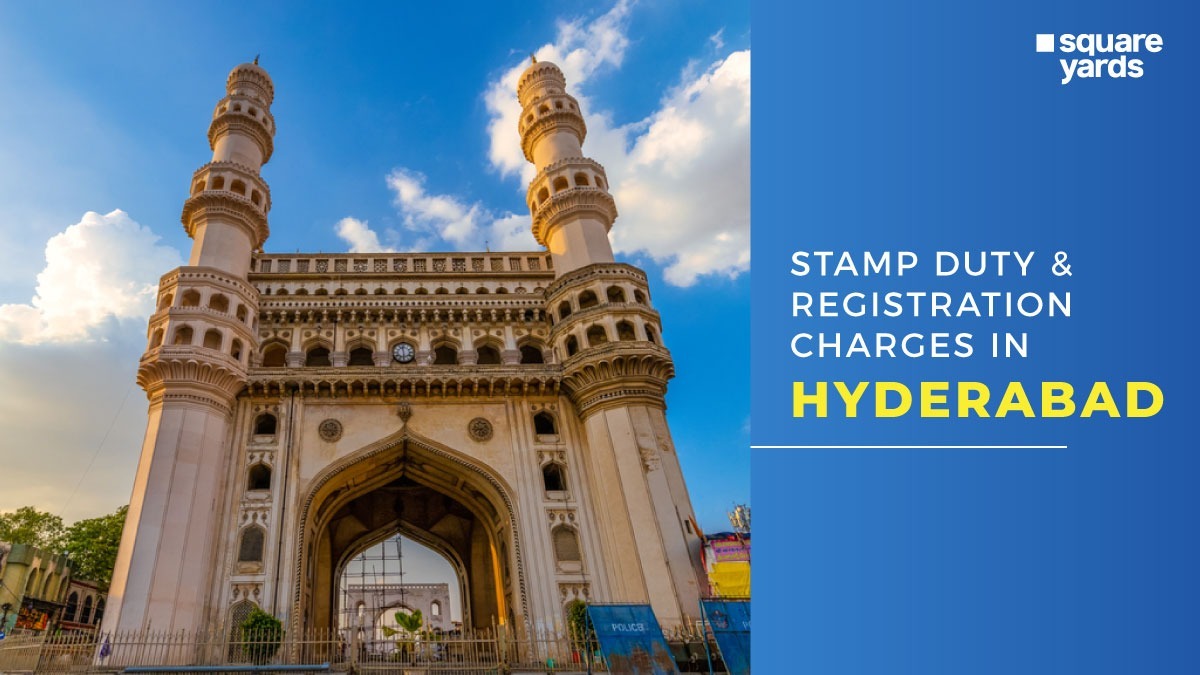A drafting of property gift deed is a document that allows the property owner to give it to someone before their death voluntarily. This is done to avoid the hassles of disputes that may arise because of succession or inheritance. The person to whom the gift deed is offered should accept it before the property owner’s death.
1.What is a Gift Deed?
Gift deed meaning: It is a formal agreement between the owner and the receipt of the gift as per the relevant provisions of law. A person who wishes to give their property or money to someone before their death makes a gift deed. It can be a movable property or an immovable property and should voluntarily flow from the donor (the person giving the gift) to the donee (the person receiving the gift). This is done to avoid any disputes that may arise after the donor’s death in terms of succession or inheritance. This deed saves time, and you can get the property instantly without moving to the court of law as in case of a will. A registered gift deed is a valid documentary record and evidence in itself and is protected by law as per Section 122 of Transfer of Property Act, 1822. The processing of such a deed is done through the aid of a Gift Deed Form.
2.Sample of a Gift Deed
(Gift Deed Format for Immovable Property)
For having a deeper understanding of the contents of a Gift Deed Form, let us see the sample of one.
GIFT DEED
THIS DEED OF GIFT made and executed at ________ (place) on ______ day ______ month _____ year.
BETWEEN:
(Name of the Donor)
(Address of the Donor)
Hereinafter referred to as “THE DONOR” of the ONE PART.
AND
(Name of the Donor)
(Address of the Donor)
Hereinafter referred to as “THE DONEE” of the OTHER PART.
WITNESSETH AS UNDER: –
- The term and expression Donor and Donee. Wherever appears in the context will also include their respective heirs, executors, administrators, successors-in-interest and assignees.
- The Donor is the absolute owner of the ______________(immovable property) bearing (property number), (Place) measuring ______ meters more particularly described in the “Schedule Property”.
- The Donor acquired the Scheduled Property via _______ (mention the description of the deed through which the donor had purchased/acquired, i.e. title deeds of the gift property).
- The Donor also states that the Scheduled Property is their property. They transfer the property to the Donee out of natural love and affection which the Donor has on Donee. The Donor is ________ (relationship) of the Donee. They transfer their right, title and interest in the property to the Donee freely and voluntarily. The Donee can now hold the Scheduled Property. They can also use and be the absolute owner of the gifted property.
Following are the facts agreed upon by both parties within the provisions of law:
- The Donor, out of natural love and affection, has transferred all rights and title of the property to the Donee. This is because Donor is ________ (mention relationship) of the Donee.
- The Donor willfully transfers the possession, and use of the said Scheduled Property to the Donee. The donee can enjoy all the liberties, advantages which the Donor earlier used.
- The Donor has transferred all the documents in original and evidence that were in their custody. These documents were relating to the title of Donor of the Schedule Property.
- The Donor promises the Donee that the Schedule Property is free from any litigation and attachments.
- The Donee will enjoy the possession of the property without any obstruction from any person.
- The Donee is given full liberty to transfer the registration of the Scheduled Property in their name. They can also use the property as an absolute owner with all the rights to use, sell, deal or part with the property. This can be as per the discretion of the Donee.
- The Donor will sign on all the necessary documents, forms, papers of transfer of register of the Scheduled Property in favour of the Donee. Any expenses incurred will be borne by the Donee.
- The Donee accepts the gift given by the Donor of the Scheduled Property. He also agrees to be a party to such a transfer.
The market value of the said property is estimated to be Rs.______/- (Rupees _______________________ only) (in words).
SCHEDULE PROPERTY
All that piece and parcel of the (Immovable Property) measuring
East to West : ______ Feet,
North to South : ______ Feet,
In all measuring: ________ Sq. Feet
IN WITNESS WHEREOF, the DONOR and DONEE have set their respective hands unto this DEED OF GIFT on the ____ day, _____ month, _____ year first above mentioned.
WITNESSES:
- Signature:
Name:
Address: (Donor Name and Signature)
(Donor)
- Signature:
Name:
Address: (Donee Name and Signature)
(Donee)
3.Property Gift Deed rules
Every legal document has certain prescribed rules to be followed while drafting them. So is the case with the Property Gift deed. Let us know property gift deed rules:
- In the gift deed Registration, the property should be owned by the Donor. The donor cannot gift something which he does not own or something he does not have.
- The gift deed should have a clause of consideration. This is because a gift deed can be entered only if there is no consideration flowing from the Donee. A Gift deed for cash is not allowed.
- The intention of the Gift deed should be clear, and it should be mentioned in the Gift deed without any worries.
- In case of property address, mention complete address with Area, Village, Landmark, City, Taluka, District, State, CTS No, Pin Code, Survey Number of the property you are gifting. This is necessary for certainty.
- Blood relation rules- Certain states like Maharashtra offer benefits on stamp duty in case of gift deed in blood relation. Hence, the relationship between the donor and done should be mentioned explicitly in the gift deed. If the relationship is other than blood relation, no such benefits of stamp duty will be available.
For the purpose of Gift Deed, blood relation includes Gift deed from:
- Father to son
- Mother to son
- Sister to brother
- Mother to daughter
- Between brothers
- Husband to wife
- Father in law to widowed daughter in law
- Mother in law to widowed daughter in law
There should be a confirmation on the Gift Deed for handling the possession of the property to the Donee of execution of Gift Deed.
Senior citizens are advised to have a revocation clause when they register their gift deed. This clause has to be agreed upon by both the donor and donee. This will help Senior citizens in future in case their children do not take their care. Other than for deed by a parent to children another gift, Gift deed to non-blood relation with no condition becomes an irrevocable gift deed, and in such circumstance, gift deed property can be sold.
Ensure to follow these property gift deed rules and understand the Gift Deed form while drafting a gift deed.
4.Important clauses in a Gift Deed
A gift deed is an important document that transfers property rights from one person to another in a written format. Certain clauses are necessary while drafting a gift deed. They are as follows:
1.Details of the property.
It is essential to mention the complete detail of the property, description, address, structure, colour, place, location, etc.
2.Rights and liabilities
It is necessary to mention any changes in the rights and liabilities in the gift deed. They can include details relating to further sales or supplementary leases.
3.Consideration Clause
The donor should mandatorily include consideration in the gift deed form. It should mention that no consideration of any kind- monetary or else was involved in such transfer-was made out of natural love and affection. Even if the smallest bit of consideration is involved, it will not be considered as a gift.
4.Possession of Property
The donor of the property must hold that property. One cannot gift something that he does not own. Also, the property must exist at the time of the making of the gift deed. You cannot give something if you don’t have it or whose existence is unsure when making the deed.
5.Free Consent
The transfer in thegift deed should be free from any improper influence, coercion, fear or threat. It should be done voluntarily, and the donor should explicitly have a strong intention to do so.
6.Relationship of Donor and Donee
It is necessary to mention the relationship of Donor and Donee, whether they are blood-related or no. If they are blood-related, certain state governments give discounts on stamp duty.
7.Rights of Donee
An attached section mentions the privileges of the Donee. It includes the rights of the Donor to make improvements to the property, receive rentals and other income and enjoy the property.
8.Delivery Clause
A delivery clause confirms the delivery of the possession of the property. It could be explicit or implied actions of the transfer.
9.Clauses for Revocation
To avoid any conflicts in the future, both parties should agree on the condition of whether revocation or official cancellation of thegift deed needs to be implied or it is to be confirmed.
5.Steps involved in the drafting of Gift Deed
Following are the steps to be kept in mind while drafting a Gift Deed.
Step 1- Draft a gift deedwith all necessary clauses like
- Date and place where the deed is to be executed
- Basic details about the Donor and Donee like Name, Residential Address, Relationship, Date of Birth, etc.
- Details about property
- Two witnesses
- Signature of Donor, Donee and witnesses
Step 2- You should print the draft on the stamp paper of appropriate value depending on the state, or you can get it done online as well.
Step 3- Get the deed registered at the Registrar or Sub-Registrar’s office.
6.Documents required for Gift Deed Registration
Ensure that donors, donee and witnesses sign your gift deed and you have paid the stamp duty and registration charges for gift deed as per state regulations. Few other documents are needed for Gift deed registration. They are as follows:
- Original Gift Deed
- Identity Proofs, like Passport, Drivers license, etc
- (Permanent Account Number) PAN Card
- Aadhar Card
- A document entitling the donor of the property to prove the title of its possession like a Sales deed
- Birth certificate to prove blood relation.
- Passport size photographs of Donor and Donee
- Copy of Electricity Bill
- Any other agreements that may be entered.
Apart from these documents, other documents may be needed depending on the property and respective state.
7. How to register the Gift Deed in India?
Before registration of the Gift deed, make sure that it is following the law. The breakup of the procedure for registration is as follows:
- Print the gift deed on stamp paper of appropriate value.
- Get the signature of Donor and the Donee in the presence of two witnesses on the Gift Deed.
- Take the signed document to the nearest Registrar Office or Sub-Registrar’s office. When saying ‘nearest,’ it refers to the Registrar or Sub-Registrar’s office nearest to the location of immovable property.
The amount of stamp duty to be paid varies state-wise and can be paid by buying stamp paper or online.
8. What is the Stamp duty in each state at the time of executing a Gift Deed?
Stamp duty and gift deed registration charges vary from different states and each year.
|
States |
Stamp duty rates |
|
Andhra Pradesh |
5% |
|
Arunachal Pradesh |
6% |
|
Assam |
8.25% |
|
Bihar |
Male to Female- 5.7% Female to male- 6.3% Other cases- 6% |
|
Chhattisgarh |
5% |
|
Delhi |
Male- 6% Female- 4% |
|
Goa |
Upto Rs. 50 lakhs- 3.5% Rs. 50-75 lakhs- 4% Rs 75 lakhs to 1 crore- 4.5% Over 1 crore- 5% |
|
Gujarat |
4.9% |
|
Haryana |
Male- 6 % in rural areas and 8% in urban areas Females- 4 % in rural areas and 6 % in urban areas |
|
Himachal Pradesh |
5% |
|
Jammu and Kashmir |
5% |
|
Jharkhand |
4% |
|
Karnataka |
Less than Rs 20 lakh-2% Rs 21-35 lakh-3% above Rs 35 lakh -5% |
|
Kerala |
8% |
|
Madhya Pradesh |
7.5% |
|
Maharashtra |
Male- 5% Female- 4% |
|
Manipur |
7% |
|
Meghalaya |
9.9% |
|
Mizoram |
9% |
|
Nagaland |
8.25% |
|
Orissa |
Male- 5% Female- 4% |
|
Punjab |
Male- 7% Female- 5% |
|
Rajasthan |
Male- 5% Female- 4% |
|
Sikkim |
In case of Sikkimese origin-4% 1% For others- 9% 1% |
|
Tamil Nadu |
7% |
|
Telangana |
5% |
|
Tripura |
5% |
|
Uttar Pradesh |
Male – 7% Female – 7%-Rs 10,000 |
|
West Bengal |
Family members- 0.5% Others- 6% Above 40 lakhs- 1% surcharge |
9.What type of properties can be gifted?
The Donor can gift movable property like cash or gift. He can also give immovable property likegift deed of land or structure. It should be existing at the time of deed and should be capable of being transferred. Any intangible property cannot be a part of a gift deed.
10.Can a Gift Deed be revoked/ cancelled?
You can gift property to another you desire. Generally, a gift deed cannot be revoked once it is registered as per the Gift deed rules. However, the donor can sometimes reconsider this decision for several reasons: non-acceptance, not acting as promised, etc. Gift under Transfer of Property Act as per Section 126 deals with revocation of immovable property. Following are the grounds of revocation:
- Mutual Agreement- Both parties can mutually agree to cancel the deed. This can be mentioned in the agreement or not. The donee has to pass on the property to the donor.
- Donee does not accept the gift- One of the main conditions in the transfer of a gift deedis acceptance by the donee. If the donee fails to accept or does not accept, then such agift deed is cancelled or revoked.
- Rescission- In case of non-fulfilment of certain conditions as mentioned in the gift deed, the gift deed can get cancelled. The donor will take back the possession of the property, and he has a period of three years to revoke the gift transaction.
- Consent of donor obtained by wrongful means- If the donor did not give free consent and it was obtained under undue influence, fraud, coercion, misrepresentation, then such a transaction is voidable at the option of the donor if he feels so.
- Conditions mentioned in the deed should not be immoral or illegal
A gift deedcan be revoked if it is immoral, illegal, against public policy or reprehensive to the property.
The right to revocation can be cancelled if the donor ratifies it by saying or through conduct.
11.What are the tax implications of gifting a property?
There is no tax or stamp duty on gift deed to be paid on gifts received (cash or kind) if the value of the gift is upto Rs. 50,000 in a year.
However, under Income Tax Act 1961, the whole value of such sum shall be taxable under “Income from other sources” if it is more than fifty thousand rupees as per Section 56(2)(viii). However, gifts from the following persons are exempted from taxation-
- Any relative
- On the occasion of marriage
- By way of will or inheritance
- In contemplation of death
- Local authority
- Charitable, educational, medical institutions
12.Gift of immovable property from father to son
It is mandatory to mention the relationship between the donor and donee. In the case of blood relations, certain states provide stamp duty concessions if there is a blood relation. The gift of immovable property from father to son is considered in this.
13.Property transfer in blood relation
While drafting a gift deed, it is necessary to mention the relationship of both the parties involved- donor and donee. This is necessary as few states provide stamp duty concessions if there is a blood relation. You are required to present documentary evidence during the registration of gift deed.
The law has defined blood relation with respect to Gift Deed. They are as follows:
- Gift from father to son
- Gift from mother to son
- Gift from sister to brother
- Gift from mother to daughter
- Gift between brothers
- Gift from husband to wife
- Gift from father in law to widowed daughter in law
- Gift from mother in law to widowed daughter in law
Conclusion
From the above article, we have understood that a gift deed is a valid legal document for transferring property from one party to another. So, make sure to include all the necessary clauses while drafting a gift deed. The donor will be assured to transfer their property to whomsoever he desires by avoiding any conflict in the future.
- GIFT will be a boost to the Residential Market of Ahmedabad and Gandhi Nagar
- India’s First Ever District Cooling System Revolutionizes GIFT City
Frequently Asked Questions (FAQs)
Is registration of Gift Deed compulsory?
Yes, registration of Gift Deed is compulsory if the value of an immovable property is more than Rupees Hundred as per section 18 of Registration Act 1908.
How is a gift different from a sales deed?
In a gift deed, no consideration is involved while in a sale deed consideration is involved. If there is a blood relation, certain states provide stamp duty concessions in case of a gift deed. Also, stamp duty is slightly higher in a sale deed.
Is there an exchange of money involved in the Gift Deed?
A gift deed does not involve any exchange of money and it should be without any sort of consideration.
A gift deed does not involve any exchange of money and it should be without any sort of consideration.
A gift deed can be questioned in court by filing a declaration. This can happen only if the Donor is not satisfied with the execution and conditions of the gift or it was made against their wish by means of misrepresentation, fraud, etc.
Can Gift Deed property be sold?
A registered gift deed can be sold only if there are no conditions attached in the gift deed.
Who can challenge a registered Gift Deed?
The person giving the gift, i.e. the Donor, and the person receiving the gift, i.e. the Donee, can challenge a gift deed. In case of the death of either party, legal heirs can take action.
How to revoke a Gift Deed?
An unregistered deed can be revoked without any issues. However, if it is a registered gift deed, then by mutual consent, failure to fulfil certain conditions as mentioned in the deed, non-acceptance by the donee or if conditions are immoral, it can be revoked.
In case it is obtained by fraud or is illegal, it can be challenged in a court of law.
8. What are the Pros and Cons of Gift Deed over Will?
Pros
Avoids disputes in future
Instant transfer of property occurs, unlike in will, where one needs to go to court for execution.
Legal document and binding once it is registered.
The donor can select to whom he wants to gift the property.
Cons
Will do not require registration and are hence more comfortable.
Wills can be changed several times.
No stamp duty or registration fees are involved in a will.
Transfer by will is exempted from tax.






























